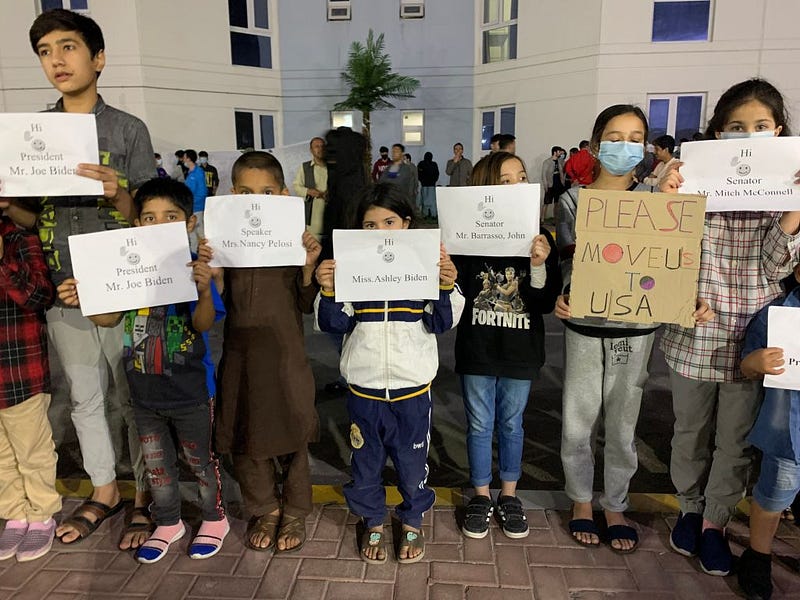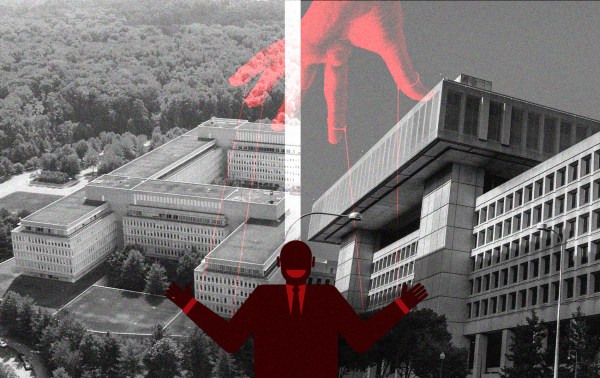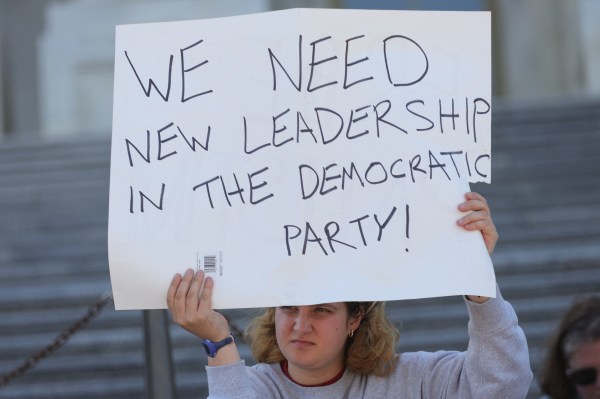One year after the final U.S. military evacuation flight took off from Hamid Karzai International Airport in Kabul, thousands of Afghans remain in temporary housing at a facility in the Persian Gulf. But the State Department may be shutting down operations, leaving about 5,500 Afghans in a desperate limbo.
Abu Dhabi’s Humanitarian City hastily opened to fleeing Afghans last fall and has been generously funded by the United Arab Emirates’ ruling monarchs. The UAE signed an agreement to house those awaiting resettlement for up to 90 days. The implicit understanding: The United States would ensure forward processing of cases within that window.
Nearly a year later, the Emiratis continue to fund the housing, plus daily food rations and medicine for thousands in the sprawling, dorm-like compound located in an industrial area south of the capital city. Meanwhile, U.S. officials have refused to process the Afghans who remain there, a procedure that would allow them to enter the United States or be referred to other countries. And indications are that may never happen. The final flight authorized by the U.S. government from the facility departed August 17. The United States ended consular services, according to leaders of private NGOs and the U.S.-based evacuation groups that have continued to monitor the Afghans’ cases.
These groups contend that by quietly shutting the door, the Biden administration is straining relations with a key Middle East ally, adding to a global refugee crisis, and perhaps once again leaving average Afghans with broken promises and dangerous futures.
Among those caught in a holding pattern are 1,000 Special Immigrant Visa applicants and their relatives. These are Afghans who were employed by U.S. military or civilian personnel during the 20-year war. Most of the rest are considered at-risk and eligible for humanitarian parole. They include those with ties to the former Afghan government, employees of Western NGOs, educators, and about 1,700 religious minorities. Nearly all arrived in Abu Dhabi last year aboard privately chartered aircraft after U.S. military evacuations ended August 30, 2021.
The religious minorities are mainly Christians and some Hazara Muslims. Many of them faced death threats in Afghanistan and—since escaping—ongoing harassment from other Afghans inside Humanitarian City.
*“This is a small group, but they are among the most vulnerable we’ve worked with,” said Joseph Robert III, a U.S. reconnaissance Marine veteran of Iraq who heads an evacuation group still working at Humanitarian City.
Robert, 42, launched the Black Feather Foundation as a nonprofit to facilitate private evacuations last year after working alongside U.S. military personnel during August evacuations in Kabul. When the military operation ended, he helped to coordinate private charter flights for tens of thousands of at-risk Afghans the U.S. had left behind.
The United States relocated 123,000 Afghans in its two-week operation last August, according to Secretary of State Antony Blinken. But the massive airlift collected Afghans who made it inside the Kabul airport, not necessarily the most vulnerable. The humanitarian organization International Rescue Committee estimates 300,000 Afghan civilians were connected to U.S. military and civil projects during the 20-year war. For many, life after the U.S. departure made it clear they had to leave.
As the United States stopped taking evacuees at its military base in Qatar, Robert helped to negotiate landing rights and temporary shelter in Abu Dhabi. Through September and October, the coalition of evacuation groups—led by nonprofits Mercury One, Shai Fund, Black Feather, and Task Force Argo—airlifted about 9,500 vulnerable Afghans to Humanitarian City, plus others to lilypad countries where they could await processing for resettlement.
Mercury One, an aid group started by conservative media personality Glenn Beck, raised nearly $30 million through Beck’s Nazarene Fund to underwrite the charters. The group continues to provide assistance for Afghan families in Abu Dhabi and inside Afghanistan.
Overall Mercury One moved 12,000 evacuees aboard dozens of flights that included a mix of at-risk minorities along with SIV cases and others. The group flew to safety the Afghanistan national girls soccer team and a planeload organized by Speaker of the House Nancy Pelosi.
At the start, the airlift was a private operation in conjunction with the U.S. government: The private groups helped the U.S. do what it was unprepared for when the chaotic exodus began as the Afghan government fell to the Taliban on August 15. Military and diplomatic personnel on the ground leaned into the outside help when it became clear President Joe Biden would not budge from an end-of-August deadline on military evacuations.
As evidence of the cooperative effort, Mercury One gave seats aboard one of its planes to “77 Afghan commandos who were critical partners with U.S. special operations forces,” according to an August 27 flight manifest. In October, according to Robert, Black Feather assisted 25 witnesses to war crimes the Defense Department wanted to protect, but that the State Department was unable to airlift to a safe country.
From the beginning, processing the Afghans at Humanitarian City was a confusing bureaucratic morass. The Department of Homeland Security never showed up to adjudicate cases, even though Biden designated it the lead agency for the Afghan resettlement program.
“It was chaos, and they needed us,” said Robert. “CENTCOM [U.S. Central Command] recognized us as an asset and they gave us a blanket call sign for all associated aircraft. All our flight manifests had to have the approval of the State Department. We were doing the groundwork and they were OK’ing it.”
Other groups I spoke to confirmed that they did preliminary vetting on all passengers (using U.S. government databases), submitted flight manifests to the State Department, and waited for approval before planes could fly. As evacuations continued in private hands after the U.S. pullout, senior State Department officials continued to meet with the groups and supervise procedures. According to meeting notes of a September 21 call, officials asked private evacuation coordinators—themselves overwhelmed and many of them volunteers—to continue submitting manifests for approval, to do the vetting, and prepare “packages” or documentation for U.S. immigration. “We cannot do the vetting because we don’t have the ability to research individuals,” explained a State officer, per the meeting notes.
State Department officials did not respond to requests for comment on procedures for those who remain in Humanitarian City.
A year later, these procedural details are relevant as the State Department moves to end processing before some of the cases they approved for flights are completed. U.S. Citizenship and Immigrations Services, which processed nearly 7,000 cases out of Humanitarian City over the past year, ended operations in July. At the end of this month, a contract with the International Organization for Migration, which typically facilitates U.S. refugee resettlement, will expire.
The private groups raised funds and used volunteer hours to do the work of the government, expecting the United States to carry through on processing individuals, either to be accepted for U.S. resettlement or to be referred on to the U.N. or other countries.
“We had 40-page dossiers on every single person we flew for the purpose of moving them on,” said Rudy Atallah, the former Department of Defense counterterrorism director for Africa who ran the operation for Mercury One. “But the State Department was hard-broke from day one and it’s been an upward battle. They are taking some people, slowly, but never making clear, to Afghans or to us, what their own process is and how it will work.”
Robert said navigating State Department procedures has been “like building a ship after it sets sail.”
For the religious minorities, the disordered process carries life-or-death consequences. Earlier this month the U.S. Holocaust Memorial Museum issued a warning on behalf of Hazaras—a Shia Muslim ethnic group long opposed by the Sunni and the Pashtun-dominated Taliban—saying they risk mass atrocities in Afghanistan without protection. Afghan Christians, meanwhile, are considered by the Taliban not minorities but apostates, and apostasy is punishable by death.
Afghanistan’s nascent underground Christian church, which grew to an estimated 10,000 under two decades of liberties buoyed by U.S. presence, is made up of converts from Islam. As Taliban policing increased last year, militants went door to door in search of outliers to its Islamic militancy. The growing network of evac groups accelerated their focus on rescuing religious and ethnic minorities. These included Christians, Hazaras, Sikhs, Hindus, Ahmadi Muslims, Baha’is, and Jews.
By September advocates for these and the other minorities began supplying to evacuation groups the names and locations of candidates for airlift. They went through an extensive vetting process before their names went before the State Department for approval on flight manifests.
While waiting, many in safe houses, the families received food and other supplies from the evac groups, as babies were born and children got sick under duress. Some of the evac groups met once a week on Zoom calls headed by former U.S. Ambassador at Large for International Religious Freedom Sam Brownback, a longtime advocate for persecuted groups.
The Taliban sent warning letters to church leaders on August 12 last year, before taking over the government, making clear they knew who they were. Those leaders managed to escape aboard a chartered flight.
A follow-up letter in October advised the mujahideen in Afghan provinces “to identify and arrest those families who have turned away from Islam,” and to detain all family members, including women and children.
The chartered flights evacuated thousands of Christians, but untold numbers remain in Afghanistan. Those waiting nearly a year in Abu Dhabi have been ostracized and even threatened by some Afghan Muslims.
Christians in the facility report they are socially excluded from the Afghan community, according to a March report prepared by Shai Fund that was shared with the State Department and others. As an example, an Afghan imam supervising one block of the compound pressured Christians to attend Friday prayers. He gave a talk saying he knew who the Christian families were.
Some Christians said that cluster managers in the compound (Afghans who serve as managers over each block of rooms) denied them basic supplies. Others reported finding Qurans left in their rooms. Several said they were harassed by translators, making them fearful of the translators and thus even more isolated.
The Emiratis have worked to accommodate everyone in Humanitarian City, say Atallah and other coordinators. UAE authorities at Humanitarian City offered the Christians separate chapel rooms, and provided rooms with private bathrooms. But neither the Afghans nor their supervisors expected them to be living in the temporary quarters one year later. The Afghans are unable to leave the compound and find work. With uncertainty and little news, tensions are rising.
The UAE has said it will not forcibly remove Afghans, but has no plans for permanently resettling them in the country since it is not a signatory to U.N. protocols on refugees. Atallah said discussions over the Afghans’ fate continue. Options include allowing for temporary work and reaching agreement with other countries to take them. Brazil, Canada, and Australia have been options, but the United States will have to refer their cases for them to be legally accepted.
A bipartisan array of U.S. immigration and other groups already laid out in a December letter to President Biden recommendations to improve the humanitarian parole process for Afghans. The groups argue for creating a special program for Afghans “that will meet the unique and large-scale needs of this population, and the urgency the situation demands.”
The Afghan Adjustment Act, recently introduced in Congress, would create a pathway to permanent legal residency in the United States for those already here on humanitarian parole. In its current form it doesn’t apply to religious minorities.
No matter what happens in Washington, Atallah said his group is prepared to continue support for vulnerable Afghans in Abu Dhabi. “We started a year ago in Afghanistan and we have not dropped these cases, nor those in Afghanistan who still remain, living under direct threats.”
For now, everyone involved in Humanitarian City is awaiting action that can only come from the U.S. government.
*Correction, August 29, 2022: Robert Joseph III is a veteran of the war in Iraq.
Mindy Belz is the former senior editor at World News Group and author of They Say We Are Infidels (Tyndale, 2016).






Please note that we at The Dispatch hold ourselves, our work, and our commenters to a higher standard than other places on the internet. We welcome comments that foster genuine debate or discussion—including comments critical of us or our work—but responses that include ad hominem attacks on fellow Dispatch members or are intended to stoke fear and anger may be moderated.
With your membership, you only have the ability to comment on The Morning Dispatch articles. Consider upgrading to join the conversation everywhere.